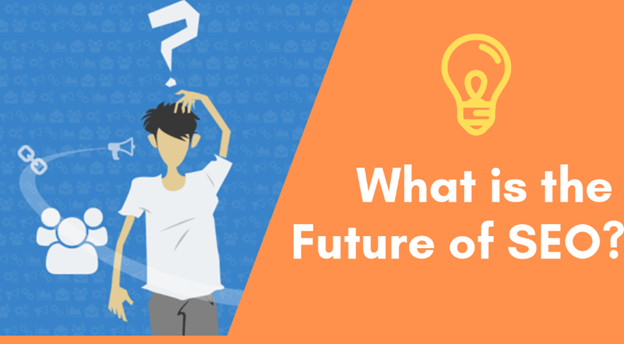Leveraging AI in SEO: The Future of Search Engine Optimization
The integration of Artificial Intelligence (AI) into Search Engine Optimization (SEO) marks a pivotal shift in how digital content is created, optimized, and discovered. AI’s capabilities in processing and analyzing vast amounts of data at incredible speeds are transforming traditional SEO strategies, making them more dynamic, personalized, and efficient. This evolution is not just about staying ahead in search engine rankings; it’s about redefining the relationship between content creators, their audiences, and the algorithms that connect them.
As search engines themselves become more sophisticated, thanks to AI, the strategies to optimize for these engines must also evolve. The future of SEO lies in understanding and leveraging AI’s potential to enhance content relevance, user experience, and ultimately, search visibility. This article explores the transformative impact of AI on SEO, highlighting key areas where AI is reshaping search engine optimization strategies and what this means for marketers, content creators, and SEO professionals.
AI-Driven Content Creation:
AI’s role in content creation is rapidly expanding, offering tools that can generate informative, engaging, and SEO-friendly content. These AI-driven solutions can analyze top-performing content across the web to identify trends, keywords, and topics that resonate with audiences, thereby guiding content creators in crafting material that is both relevant and competitive. This not only speeds up the content creation process but also enhances its effectiveness by aligning closely with search intent and user preferences.
However, leveraging AI in content creation demands a balance between automation and human touch. While AI can provide a solid foundation and insights, the creativity, empathy, and expertise of human writers remain irreplaceable. The challenge lies in integrating AI tools in a way that amplifies these human qualities, ensuring that the content remains engaging and authentic while being optimized for search engines.
- Thanks to Craig Hawthorne, writer at Modest Money
Personalized Search Experiences:
AI is making search experiences more personalized than ever before. By analyzing user behavior, preferences, and search history, AI can tailor search results to individual users, making them more relevant and useful. This level of personalization enhances user satisfaction and engagement, encouraging more interactions and longer visits, which are positive signals for search engines. For SEO professionals, understanding and optimizing for these personalized experiences becomes crucial, requiring a more nuanced approach to keyword research, content creation, and user engagement strategies.
The implications of personalized search experiences extend beyond traditional search queries to voice and visual searches, both of which are becoming increasingly popular. Optimizing for these AI-driven search modes requires a deep understanding of natural language processing and image recognition technologies, pushing SEO professionals to broaden their skill sets and adopt new optimization strategies.
- Thanks to Anila Lahiri, Chief Marketing Officer at Ein Search
Enhancing User Experience with AI:
AI’s ability to analyze vast datasets extends to understanding and improving the user experience (UX) on websites. By identifying patterns in user behavior, AI tools can suggest optimizations for site design, content layout, and navigation, making websites more intuitive and user-friendly. A positive UX is a key ranking factor for search engines, as it directly impacts user engagement metrics such as bounce rates, time on site, and click-through rates.
Furthermore, AI can automate the testing of different UX designs, allowing for rapid experimentation and optimization. This not only improves the site’s SEO performance but also ensures that users find the information they need quickly and efficiently, enhancing overall satisfaction and loyalty.
- Thanks to Mike Johnson, CMO of Great Homeschool Conventions
AI in Link Building and SEO Strategy:
Link building, a cornerstone of SEO strategy, is also being transformed by AI. AI tools can identify potential link-building opportunities by analyzing the web for relevant, high-authority sites and assessing the likelihood of successful outreach. This makes the link-building process more strategic and data-driven, increasing the quality and relevance of backlinks and, consequently, the site’s search engine ranking.
Moreover, AI’s predictive analytics capabilities allow SEO professionals to forecast trends, understand the competitive landscape, and adapt their strategies proactively. This forward-looking approach ensures that SEO efforts are not just reactive but are strategically aligned with future search trends and user behaviors.
- Thanks to Alex Miningham, CEO of Breakout
Real-Time SEO Optimization:
One of the most significant advantages of AI in SEO is the ability to optimize content in real-time. AI algorithms can continuously monitor search engine results pages (SERPs), user engagement metrics, and competitor activities, making adjustments to content, keywords, and meta tags as needed. This dynamic approach to SEO ensures that content remains highly visible and relevant, adapting to changes in search algorithms, user preferences, and competitive content.
Real-time optimization also extends to A/B testing, where AI can manage and analyze multiple content variations simultaneously, quickly identifying and implementing the most effective SEO strategies. This agility is crucial in a digital landscape where search algorithms and user behaviors are constantly evolving.
- Thanks to Jessica Shee from M3 Data Recovery
Navigating SEO Ethics in the Age of AI:
As AI becomes increasingly integral to SEO strategies, navigating the ethical considerations of AI-driven optimization becomes paramount. The use of AI in content creation and optimization raises questions about authenticity, transparency, and the potential for manipulation of search rankings. Ethical SEO practices must prioritize the genuine value and relevance of content for the user, ensuring that AI tools are used to enhance, not deceive, the search experience. This commitment to ethics not only builds trust with audiences but also aligns with search engines’ evolving algorithms, which are increasingly designed to reward content that offers true value to users.
Moreover, the ethical use of AI in SEO extends to data privacy and security. With AI’s reliance on large datasets for personalized search experiences and optimization, safeguarding user data becomes a critical responsibility for SEO professionals. Adhering to data protection regulations and ethical standards is essential in maintaining user trust and complying with legal requirements. As AI technology advances, the SEO community must foster a culture of ethical use, ensuring that innovations serve the interests of both users and the integrity of the digital ecosystem.
- Thanks to Daniel Foley, Co-founder at Assertive Media
The Impact of AI on SEO Skill Sets and Roles:
The integration of AI into SEO is not only transforming strategies and practices but also the skill sets and roles required within the field. As AI takes on tasks related to data analysis, content optimization, and real-time adjustments, SEO professionals must evolve, acquiring new skills in AI technology, data science, and machine learning. This shift does not diminish the importance of traditional SEO skills but rather complements them, creating a more diverse and dynamic field.
The role of the SEO professional is expanding to include expertise in AI tool selection, implementation, and management, alongside a deeper understanding of user psychology and search intent. This evolution opens up new career paths and opportunities within SEO, encouraging continuous learning and adaptation. As AI reshapes the landscape, the most successful SEO professionals will be those who can blend technical AI skills with creative and strategic thinking, driving forward the future of optimized search.
- Thanks to Oliver Capon, Operations Manager at Smart Detectors
Preparing for the Future: SEO in a Post-AI World:
As we look to the future, it’s clear that AI will play a dominant role in shaping SEO strategies and the broader digital marketing landscape. Preparing for this future requires not only a deep understanding of AI technology and its applications in SEO but also a forward-thinking approach to how search engines and user behaviors may continue to evolve. SEO professionals must stay abreast of AI advancements, experimenting with new tools and techniques to stay ahead of the curve.
Anticipating the future of SEO in a post-AI world also involves considering the broader implications of AI on digital content consumption, privacy, and the global internet ecosystem. By adopting a proactive and strategic approach to AI in SEO, professionals can not only optimize for the search engines of today but also prepare for the innovations of tomorrow. The future of SEO is a dynamic and exciting frontier, offering endless opportunities for those ready to embrace the transformative power of AI.
- Thanks to Cary Subel CEO of SafeSleeve
Conclusion:
The integration of AI into SEO represents a paradigm shift in how we approach search engine optimization. From AI-driven content creation and personalized search experiences to enhancing user experience, link building, and real-time optimization, AI is reshaping the SEO landscape, making it more dynamic, efficient, and effective. As AI technologies continue to evolve, SEO professionals must adapt, embracing new tools and strategies to stay competitive in the ever-changing world of search. The future of SEO is not just about understanding algorithms but leveraging AI to create more meaningful, engaging, and successful online experiences.




